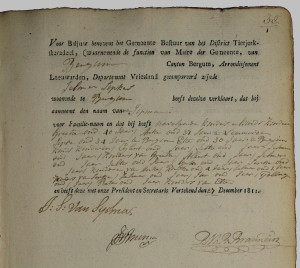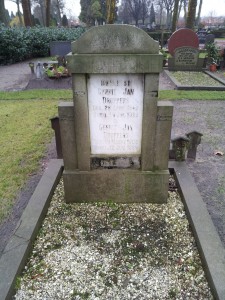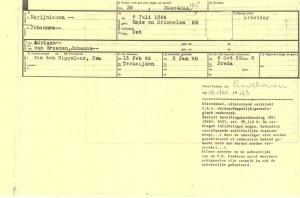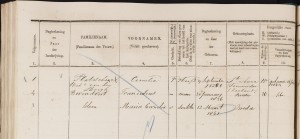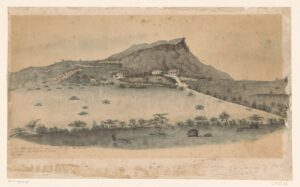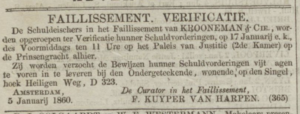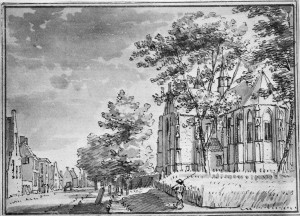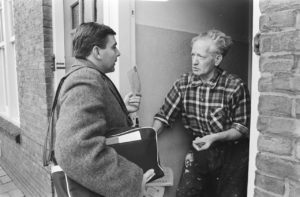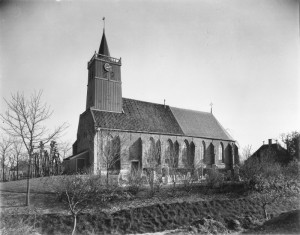The French occupation from 1795-1813 introduced many new types of administration, including the civil registration. To properly record people, it was necessary that they all had a last name. In 1811 and 1813, Napoleon decreed that everybody had to register their last name. After the French occupation ended, the Dutch government decided to keep the obligated last name. In 1825 they required that everybody who had not registered his name yet should do so. You can find information about … [Read more...]
Online cemeteries – Dutch alternatives to Find a Grave
Not many cemeteries in the Netherlands can be found on international websites like Find a Grave or Billion Graves. There is no Dutch equivalent for these sites, but there are several websites that provide photos of graves. … [Read more...]
Personal record card
Personal record cards were used from 1938 to keep track of who lived where. They are part of the population registration. Personal record cards are a great source of information for recent research because they cover the period from 1938 onward. Copies of personal record cards of deceased people can be ordered for a fee from the Central Bureau for genealogy. … [Read more...]
Population registers
Population registers can be a great source of information because they list all the inhabitants of a house, usually one or more families together with their domestic staff. Since 1850, the Dutch population registers form a continuous registration where you can find who lived where at all times. They look like census records but differ in one important aspect: population registers were kept up-to-date during the period the register covers (usually ten years). If you think of the census record as … [Read more...]
Researching Military Ancestors in the Netherlands – Before 1795
I often get questions about finding military ancestors, and thought I would write a few posts about that. I will start with the early period, before 1795. Before 1795, most soldiers were professional soldiers, not conscripts. The Dutch Republic (1588-1795) hired both Dutch and foreign men. Often, whole regiments were hired, including from Scotland, Switzerland, and Germany. The regiments would be stationed in garrison towns throughout the republic, changing every few years. Some soldiers … [Read more...]
Slave registers of Curacao now available online
The slave registers of Curacao (1839-1863) and the emancipation registers of Curacao (1863) are now available via the website of the National Archives of Curacao and National Archives of the Netherlands. … [Read more...]
Source – Bankruptcy files
If someone is unable to meet his financial obligations, the court can be asked to declare him bankrupt. The court appoints a curator who inventories the debts and assets of the bankrupt person, who the creditors are, and how they can best be paid. When everything is settled, which could take years, the bankruptcy is ended. Bankruptcy files Records are created of all the actions that happen after somebody is declared bankrupt. Together, these form a bankruptcy files. These files are part of the … [Read more...]
Source – Baptismal record
Before 1811, baptismal records are the main source for information about an ancestor's birth date. Baptismal records should have been kept since the Trente council of 1545-1563, but for most areas they only survive since the early to mid 1600s. Most children were baptized within days of being born. In some churches, children were baptized the next Sunday. Others baptized them the same day, or may have waited several weeks. Anabaptists and similar religious only baptized adults, so in that … [Read more...]
Source – Census records
The first nation-wide census of the Netherlands was held in 1795, during the French occupation. The first official Dutch census that recorded every individual was held in 1830 and was held every ten years. In 1850, the population register was introduced to keep the population information up-to-date in between censuses. Initially, the census was used to verify and correct the population registers. With the introduction of digital record keeping, this was no longer necessary so the decennial … [Read more...]
Source – Church Membership Records
Church membership records or lidmatenboeken record the members of a church. Church membership records are typically kept by protestant churches, like the Dutch Reformed Church. In the protestant faith, people become members by confession of faith as adults. This is different than in the Roman Catholic Church, that considers people as members from the moment of baptism, often in infancy. Structure of church membership records Church membership records are typically kept in chronological … [Read more...]
